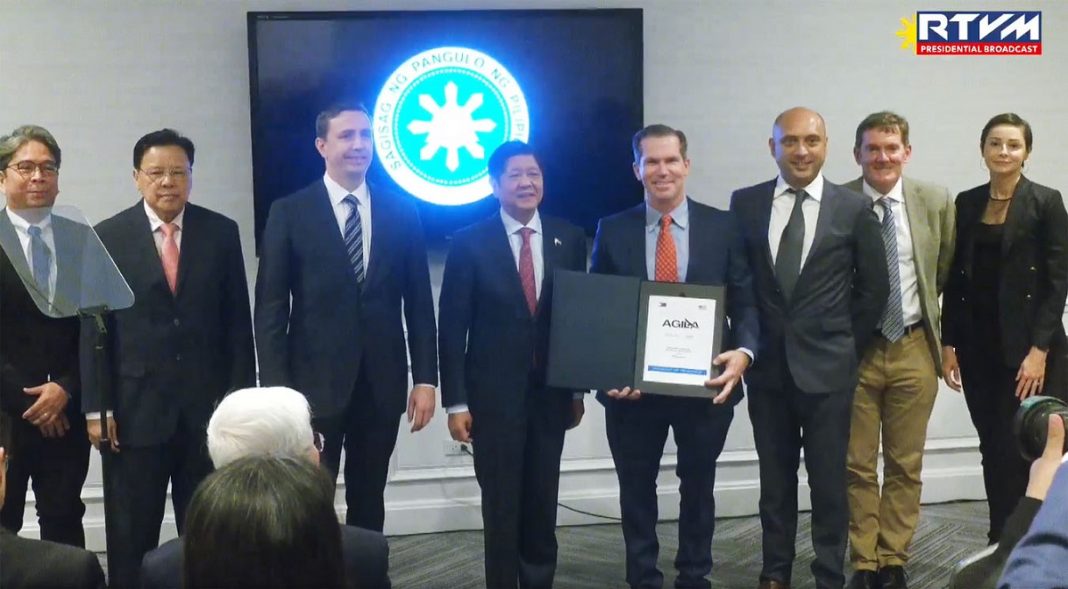The Philippines will soon deploy the first Internet satellites solely dedicated to the country to improve connectivity in far-flung areas.
This after California-based Astranis and local firm HTech Orbits forged a collaboration on Wednesday, Nov. 15, to bring Internet connectivity to unserved and underserved areas in the Philippines by launching “MicroGEO” satellites in space.
The MicroGEO satellites will provide Internet service in the unserved and underserved areas of the Philippines, covering up to 10 million users and 30,000 barangays.
Unlike the low Earth orbit focus of other companies such as Starlink, MicroGEO features a small form factor satellite combined with proprietary technology and placed in geosynchronous orbit.
Astranis said the MicroGEO satellites are more powerful at a fraction of the cost and can be built in 12-18 months, or about five times faster than their competitors.
“Astranis and Orbits have joined forces to bring Internet connectivity to unserved and underserved areas in the Philippines. This partnership will help bridge our digital divide and foster our digital transformation,” Pres. Ferdinand R. Marcos Jr. said after the signing of the agreement at the Ritz-Carlton Hotel in San Francisco during the sidelines of the Asia Pacific Economic Cooperation (APEC) summit.
Through the partnership, HTech Orbits and Astranis will deploy the first two Internet satellites dedicated to the Philippines, a program that is expected to generate $400-million investment over the next eight years.
The program is projected to create more than 10,000 jobs for direct and indirect employees and partners.
During the event, Philippine ambassador to the US Jose Manuel Romualdez announced the official name of the first satellite as “Agila” to foster the spirit of technological advancements and strengthening international partnerships.
The officials present were US Commerce Department deputy assistant secretary Pamela Phan, Astranis Space Technologies Corp. founder and CEO John Gedmark, Astranis commercial sales director Ajmair Heer, and co-founder Augusto Baculio.
“This initiative is not just about technological advancement but also about empowering our people to foster inclusive development. The connectivity provided by these satellites will create jobs, catalyze economic growth, improve access to education and healthcare, and create new opportunities for Filipinos in every corner of the archipelago,” said House speaker Ferdinand Martin G. Romualdez, who was with Marcos Jr. at the APEC meeting.
“The connectivity provided by the dedicated satellite would also help accelerate the realization of the vision for prosperity under the Internet Transaction Act approved by Congress and expected to be signed into law soon by the President,” he said.
The measure calls for effective regulation of commercial activities through the Internet or electronic means to ensure consumer rights and data privacy are protected, innovation is encouraged, fair advertising practices and competition are promoted, online transactions are secured, intellectual property rights are respected, and product standards and safety are observed.
“With enhanced connectivity and access to information, businesses in the Philippines can become more globally competitive. Improved Internet services facilitate faster and more efficient communication, reducing barriers to trade and enabling businesses to participate more actively in the global economy,” Romualdez said.
He added that the installation of 3,000 to 6,000 sites for the satellite services requires substantial infrastructure development such as the construction of ground stations, network facilities, and other related infrastructure.
These, he said, would stimulate economic activity, generate employment in the construction sector, and contribute to the development of supporting industries.
Likewise, Romualdez noted that access to high-speed Internet in previously underserved areas can also revolutionize education and healthcare services as remote learning, telemedicine, and other online services become feasible, ensuring that even the most distant communities have access to quality education and healthcare.
“The economic significance of investment and satellite launch initiative lies not only in the immediate benefits of job creation and infrastructure development but also in the long-term potential to position the Philippines as a hub for space technology, stimulate economic growth in underserved regions, and enhance the country’s overall competitiveness on the global stage,” Romualdez said.




